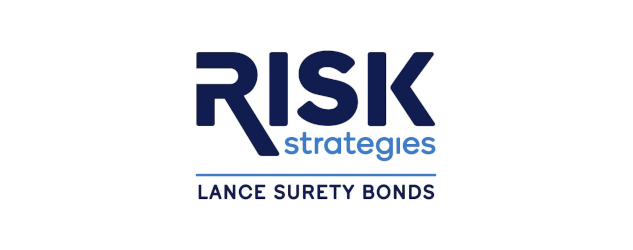Cash Bond vs Surety Bond: What’s the Difference?
In legal, business, and regulatory settings, bonds play a vital role in ensuring obligations are met and agreements are honored. Whether you are dealing with a court case, applying for a contractor license, or bidding on a government project, you may be required to post a bond. Two common types are cash bonds and surety bonds, terms often confused or used interchangeably, but which serve different purposes and function differently.
This article explains what these bonds are, how they work, and the key differences between them. It also covers a term that often comes up in legal contexts: the cash surety bond, a blend of terminology that points to the use of money or collateral in meeting bonding requirements. We will also try to provide an outline of the surety bond market size and how this may develop in the coming years.
Understanding the distinctions is crucial whether you're an individual navigating a court order, a contractor working on public jobs, or a business complying with state regulations.
What Is a Cash Bond?
A cash bond is a financial deposit made directly by an individual to guarantee the fulfillment of a specific obligation. Unlike a surety bond, which involves a third-party guarantor, a cash bond is paid in full, usually to a court or government authority and held until the obligation is fulfilled or the case is resolved.
When Is a Cash Bond Required?
Cash bonds are commonly used in:
- Court proceedings: A defendant might post a cash bond to be released from custody while awaiting trial. The money ensures the individual appears in court as required.
- License compliance: Some professional licenses require a bond to guarantee ethical or lawful behavior, and cash bonds can serve this purpose.
- Financial guarantees: In business contracts or real estate transactions, cash may be deposited to guarantee performance or payment.
Whether a cash bond is required depends on the specific case, legal jurisdiction, or regulatory framework. In some situations, an individual may have the choice to post a cash bond or obtain a surety bond through a provider.
Who Is Involved?
A cash bond typically involves:
- The individual (principal): Posts the full amount of the bond.
- The obligee: Usually a court, state agency, or entity requiring assurance.
- (Sometimes) a surety company: In hybrid scenarios or when the term ‘cash surety bond’ is used, a surety provider may be involved to offer collateral-backed guarantees, though this is more typical of surety bonds than cash bonds.
How Does a Cash Surety Bond Work?
In some contexts, particularly in court proceedings, the term cash surety bond is used. It generally refers to a bond that can be satisfied either with cash or a surety company’s guarantee, giving the defendant or obligated party the option of posting full payment or using a third-party surety.
In the case of a pure cash bond, here’s how the process typically works:
- Deposit: The full amount of the bond is paid in cash (or certified funds).
- Holding period: The money is held in escrow or by the court or agency until the obligation is fulfilled.
- Release or forfeiture:
- If the individual complies with the terms (e.g., appears in court, fulfills contract), the money is refunded.
- If the individual fails to meet the obligation, the money may be forfeited.
- If the individual complies with the terms (e.g., appears in court, fulfills contract), the money is refunded.
This process requires liquidity up front, but offers full return upon compliance, assuming no penalties are incurred.
What Is a Surety Bond?
A surety bond is a legally binding three-party agreement involving:
- The principal: The person or business that needs the bond.
- The obligee: The party requiring the bond (e.g., a government agency).
- The surety: A licensed bonding company that guarantees the principal’s obligation will be fulfilled.
Surety bonds are used to ensure compliance, performance, or financial responsibility without requiring the principal to post the full bond amount in cash. If the principal fails to meet their obligations, the surety compensates the obligee and may seek reimbursement from the principal.
Common Use Cases for Surety Bonds
- Construction projects: Bid, performance, and payment bonds are often required for public or large-scale private construction.
- Licensing: Contractors, auto dealers, and other professionals may need surety bonds to obtain or maintain a license.
- Legal requirements: In court settings, surety bonds may be required to secure bail, appeal rights, or estate administration.
How Does a Surety Bond Work?
A surety bond is a three-party agreement that ensures an obligation will be fulfilled without requiring the principal to post the full bond amount in cash. Here’s a step-by-step overview of how it works:
- Application: The principal (the person or business needing the bond) submits an application to a licensed surety provider. This application includes details about the obligation, financial information, and relevant history. You can start by requesting a surety bond quote online
- Underwriting and Risk Assessment: The surety evaluates the principal’s creditworthiness, financial strength, industry experience, and overall risk profile. This process determines whether the bond can be issued and under what terms.
- Premium Payment: If approved, the principal pays a premium, typically 1–10% of the total bond amount, based on the assessed risk. Unlike a cash bond, this premium is non-refundable, even if no claim is ever made.
- Guarantee: The surety guarantees that the principal will fulfill the obligation to the obligee. If the principal fails to meet the terms of the bond—such as completing a project, complying with regulations, or appearing in court—the surety steps in to compensate the obligee.
- Reimbursement: After paying the obligee, the surety has the legal right to recover the amount from the principal. This ensures that the principal ultimately bears the financial responsibility for noncompliance.
Cash Bond vs. Surety Bond: What’s the Difference?
While both types of bonds aim to guarantee performance or compliance, they differ in structure, risk, and cash and surety bond cost. Here is a side-by-side comparison:
|
Feature |
Cash Bond |
Surety Bond |
|
Upfront Cost |
Full bond amount paid in cash |
Percentage of bond amount paid as a premium |
|
Refundable? |
Yes, if terms are met |
No (premium is non-refundable) |
|
Third Party Involved? |
No (unless a hybrid cash/surety setup) |
Yes – a surety company backs the obligation |
|
Approval Process |
None – just payment |
Underwriting based on credit and risk |
|
Risk |
Personal funds are at full risk if default |
Surety may pay, but principal owes reimbursement |
A cash bond is simpler in some cases, but requires more financial outlay. A surety bond spreads the risk and cost over time, but involves an external party and application process.
Conclusion
Understanding the difference between a cash bond and a surety bond can make all the difference when navigating legal or business obligations. Cash bonds require upfront liquidity but offer a full refund if obligations are met. Surety bonds, on the other hand, shift the risk to a third-party guarantor, making them more accessible for many individuals and businesses without tying up capital.
Ultimately, the choice depends on your financial situation, the requirements of the obligee, and the type of obligation at stake. By weighing your options and understanding how each bond functions, you can make an informed decision that protects both your interests and your legal standing.
Sources
SAM.gov. (n.d.). Federal contracting opportunities.
https://sam.gov/opportunities
Cornell Law School. (n.d.). Court order. Legal Information Institute.
https://www.law.cornell.edu/wex/court_order
Cornell Law School. (n.d.). Regulations. Legal Information Institute.
https://www.law.cornell.edu/regulations
U.S. Department of the Treasury, Bureau of the Fiscal Service. (n.d.). Laws and regulations governing surety bonds.
https://www.fiscal.treasury.gov/surety-bonds/laws-regs.html
U.S. Department of the Treasury, Bureau of the Fiscal Service. (n.d.). Surety bonds overview.
https://www.fiscal.treasury.gov/surety-bonds/
National Association of Automotive Auctions. (n.d.). State motor vehicle dealers bond and recovery fund.
https://www.naaa.com/pdfs/legal_documents/State_MV_Dealers_Bond_and_Recovery.pdf
Investopedia. (n.d.). Bail bond.
https://www.investopedia.com/terms/b/bail-bond.asp
Acquisition.gov. (n.d.). Federal Acquisition Regulation (FAR) Part 28 – Bonds and insurance.
https://www.acquisition.gov/far/part-28#FAR_28_102
U.S. Small Business Administration. (n.d.). Stay legally compliant.
https://www.sba.gov/business-guide/manage-your-business/stay-legally-compliant
U.S. Department of the Treasury, Bureau of the Fiscal Service. (n.d.). List of certified surety companies.
https://www.fiscal.treasury.gov/surety-bonds/list-certified-companies.html
National Association of Surety Bond Producers. (n.d.). About surety.
https://www.nasbp.org/about/about-surety/
Research Dive. (n.d.). Global surety market analysis and forecast.
https://www.researchdive.com/8636/surety-market
Lance Surety Bonds. (n.d.). What is a surety bond?
https://www.lancesuretybonds.com/learn/what-is-a-surety-bond
Lance Surety Bonds. (n.d.). Surety bond quote.
https://www.lancesuretybonds.com/surety-bond-quote
Lance Surety Bonds. (n.d.). Surety bond cost.
https://www.lancesuretybonds.com/learn/surety-bond-cost
Get a FREE Surety Bond Quote in Minutes
- Fast and Secure Application
- Money Back Guarantee
- Approval in Minutes
- Nationwide Coverage
- Fast and Secure Application
- Nationwide Coverage
- Approval in Minutes
- Money Back Guarantee
- Image

- Image

- Image

Lance Surety Bond Associates, Inc. is a surety bond agency based out of southeastern Pennsylvania that is able to write all surety bond types in all 50 states. We are dedicated to servicing all of our customers' surety bonding needs throughout the country and guarantee competitive rates, timely responses, and unparalleled customer service.







